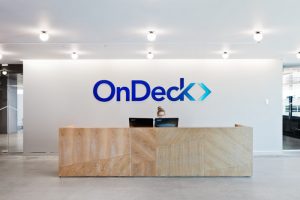New York-based FinTech OnDeck Capital has been dealing with its share of challenges in 2020.
Founded in 2006, the company offers three products for small businesses: short-term loans of up to $500,000, lines of credit of up to $100,000 and low-interest loans under the U.S. Paycheck Protection Program (PPP) through the Small Business Administration (SBA).
Earlier this month, activist investor Voce Capital Management sent a letter to investors, urging them to vote against three OnDeck board members who are running for re-election this month. Voce founder and CIO J. Daniel Plants explained that “OnDeck’s lack of strategic focus, runaway costs and weak corporate governance have contributed to chronic underperformance.”
As a result, Voce, whose 1.3 million shares make it one of OnDeck’s largest stockholders, asked stockholders to vote OnDeck CEO Noah Breslow off the board, as well as Jane Thompson, chairman of corporate governance and nominating committee; and Ronald Verni, chairman of the compensation committee.
OnDeck countered in a statement, arguing that all three directors brought “leadership and important expertise” to the board.
Now comes word that OnDeck has reported a $59 million net loss and $57.6 million adjusted net loss for the first quarter. The company also revealed that at the end of 2019, 11 percent of OnDeck’s loans were in some stage of delinquency. By March 31, that number had risen to 27 percent, and by the end of April, approximately 45 percent of OnDeck’s loans were in some stage of delinquency.
Breslow cited the spread of COVID-19 as a factor, putting its customers under “unprecedented” financial stress. He added that the company has made changes to its business to “preserve liquidity, support our customer base, manage our loan portfolio and reduce costs.”
As a result, OnDeck plans to cut its loan originations in the second quarter by 80 percent. It is also aiming to reduce its operating expenses by 25 percent between the first and second quarters with such steps as placing 30 percent of employees on part-time or furlough status and reducing salaries for full-time workers by 15 percent. Breslow is taking a 30 percent pay cut.
As the company moves through 2020, it will continue to focus on boosting cash flow and decreasing risk. “Internally, our top focus is liquidity and capital preservation,” Breslow said.
























